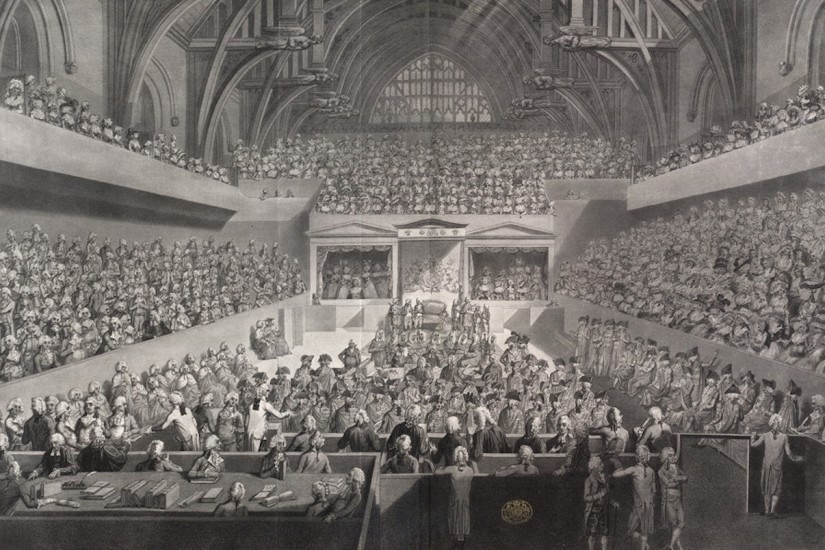What is an impeachable offense? When the Constitution’s Framers needed to set the scope for unacceptable misconduct in office, they relied on a one-word shorthand: Hastings. As the Federal Convention of 1787 debated language subjecting the president to impeachment “for treason and bribery,” George Mason objected that the narrowness of those terms would excuse some of the worst criminals: “Treason … will not reach many great and dangerous offenses. Hastings is not guilty of treason.” Warren Hastings was guilty of something else; something, by implication, that ought to be covered, too. Arriving at “high crimes and misdemeanors” took some further argument, but none of the Framers disputed the aptness of the example that helped them get there. Impeachment had to make room for a Hastings.
Hastings was the first British governor-general in India, and as the Convention met in Philadelphia, he was arguably the world’s most infamous man. Five months after the Constitution was signed, on the other side of the Atlantic, he went on trial before the House of Lords. The proceedings would last for more than seven years and end in his overwhelming acquittal. Hastings—a consummate imperial bureaucrat—did not look the part of a villain, a fact conceded by the lead prosecutor: “We never compared Mr. Hastings to a Lion or a Tyger; we have compared him to a Rat or a Weasel.” Nevertheless, the charges against him were severe: “Acts of Oppression” against the Indian people, extortionate revenue extraction, seizure of Indians’ private property, financial corruption.
At its outset, the Hastings trial dominated the attention of the political establishment because it was the era’s most serious internal challenge to the conduct of British imperialism. It was the most consequential impeachment trial in Anglo-American politics (and still is, with the possible exception of Andrew Johnson’s), and it was conducted in a setting to match, the cavernous, medieval Westminster Hall. Tickets are said to have sold for as much as £50, the equivalent of more than $9,000 today. To the more reflective spectators, the Hastings impeachment mattered because the empire was on trial; to the rest, it was simply the show of the season.
For Americans in 2019, with impeachment still a live issue, the trial ought to matter for another reason, because of the man who, along with Hastings, stood at its center: the lead prosecutor, Edmund Burke. Burke is the rare political thinker to have both theorized about impeachment and participated in one. The questions that he pursued through his prosecution of Hastings—Is impeachment a political deliberation or a judicial trial? What purposes should an impeachment accomplish? What is the right standard of guilt?—are still questions that occupy Americans today.
